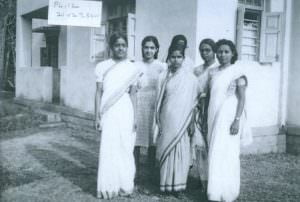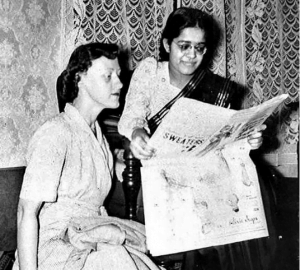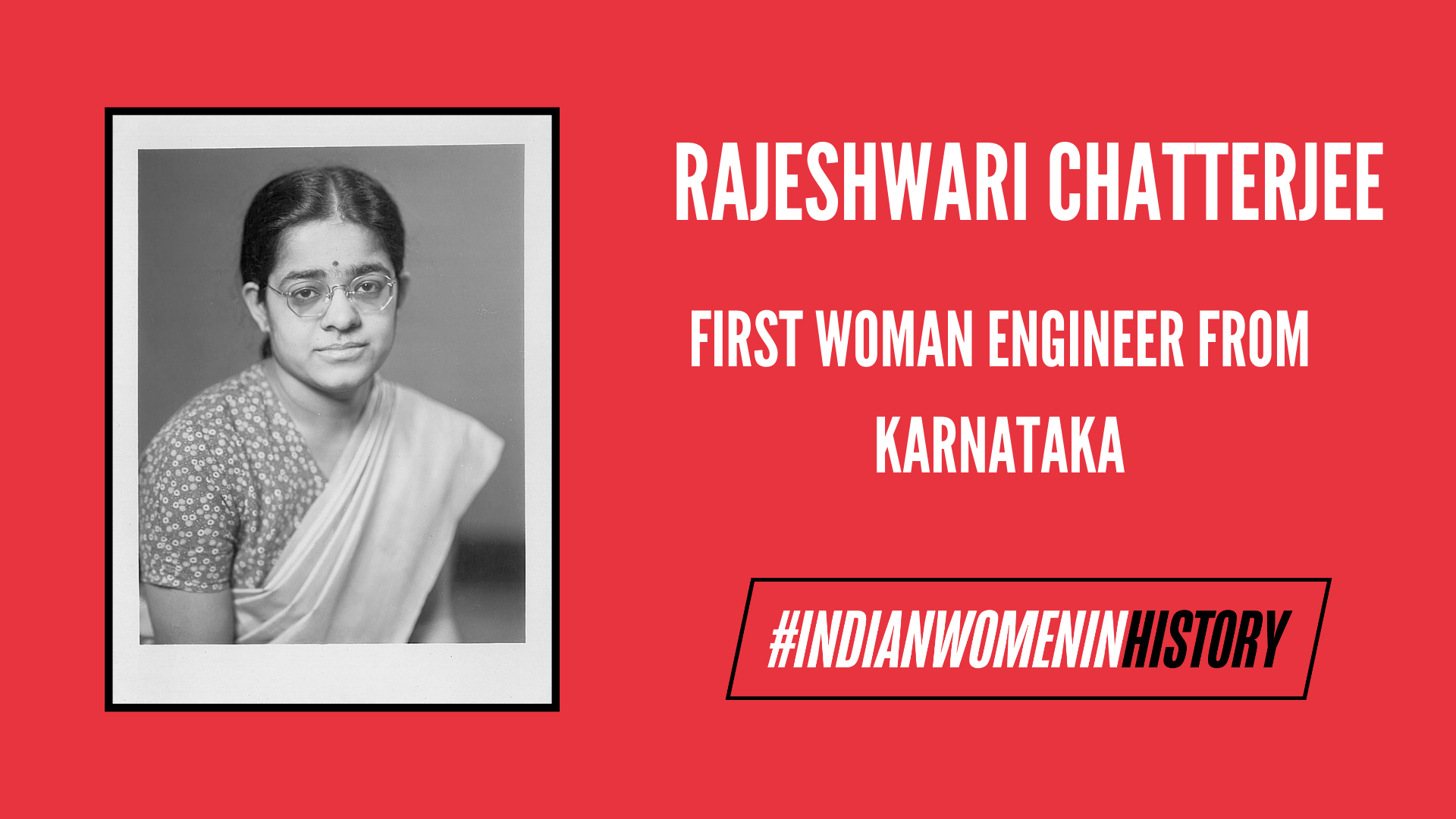Rajeshwari Chatterjee, was born on 24th January 1922 and passed away on 3rd September 2010. She was the first woman engineer from the state of Karnataka. She made great contributions to the scientific and engineering communities and also served as a respected educator. She was a professor and later the chairperson of the Department of Electro-Communication Engineering (ECE) at Institute of Science (IISc), Bangalore

Rajeshwari Chatterjee
Early life and education
Rajeshwari was born to a well to do family in Nanjanagud, near Mysore, Karnataka, India. In the pre-independent India, it was rare for women to receive education. In a social and cultural setup where women would eventually have to abide by the rules of the society, she was able to receive education as per her interest in a “special English school”, which was set up by her grandmother Kamalamma Dasappa, a social reformer for the women in India.

Some of the women students in IISc in 1945, including Chatterjee (far left).Image Credit: Archives and Publications Cell, IISc
After her schooling she did her B.Sc (Hons) and M.Sc degree in Mathematics from the Central College of Bangalore. She performed very well and secured the first position in the Mysore University. After her MSc she joined Indian Institute of Science (IISc), 1943, in Bangalore as a Research Student in Communication engineering at the Electrical Technology Department.
In 1946, she was selected for a scholarship, to pursue higher education, abroad by the Government of Delhi and she left for the United States. A month before the Independence, she left for the USA, where she went to school at the University of Michigan and earned her Master’s degree from the Department of Electrical Engineering. This was at a time when it was considered to be quite scandalous for women to pursue higher studies abroad, but that wouldn’t stop her.
Rajeshwari Chatterjee completed eight months of practical training in the Division of Radio Frequency Measurements at the National Bureau of Standards in Washington D.C. Upon finishing which, she headed back to the University of Michigan to complete her studies. In 1953, she received her PhD under the guidance of Professor William G. Dow
Career in India

Image Credits: Adafruit
In 1953, after obtaining the PhD degree, she returned to India and joined the Department of Electrical Communication Engineering at IISc as a faculty member. She was the first woman to be on the faculty of Indian Institute of Science.
She and husband Sisir Kumar Chatterjee (also a faculty member in the institute) and started research in the area of Microwave Engineering, the first such research in India. They soon built a microwave research laboratory. The couple’s daughter, Indira Chatterjee is working as a Professor of Electrical and Biomedical Engineering at the University of Nevada.
In the same period, Chatterjee became a professor and was selected for the position of Chairman in the Department of Electrical Communication Engineering. Her main teaching were electromagnetic theory, electron tube circuits and microwave technology. She was very active in research too. In the next few years she mentored twenty Ph.D students, wrote over 100 research papers and seven books related to microwave engineering and antennae.
She wrote the following books.
- Elements of Microwave Engineering
- Antenna Theory And Practice
- A Thousand Streams: A Personal History
- Dielectric And Dielectric Loaded Antennas
- Advanced Microwave Engineering: Special Advanced Topics
- Vasudhaiva Kutumbakam: The Whole World Is But One Family: Real Stories of Some Women and Men of India
- Antennas for Information Super Skyways: An Exposition on Outdoor and Indoor Wireless Antenna, co-authored by Perambur S. Neelakanta
Awards
Rajeshwari received the following awards in the field of Microwave engineering.
- Mummadi Krishnaraja Wodeyar Award for first rank in the BSc (Hons)
- M T Narayana Iyengar prize and the Waters Me- morial prize for the first rank in M. Sc.
- Mountbatten prize for the best paper from the Institute of Electrical and Radio Engineering (UK)
- J.C Bose Memorial prize for the best research paper from the Institution of Engineers
- Ramlal Wadhwa Award for the best research and teaching work from the Institute of Electronics and Telecommunication Engineers.
Also read: Five Indian Trailblazing Women Engineers Smashing Stereotypes
About the author(s)
Shivani is a day dreamer, a foodie, a dog lover and a chai enthusiast. She is a resolute feminist, and loves to learn more and more about gender issues.




